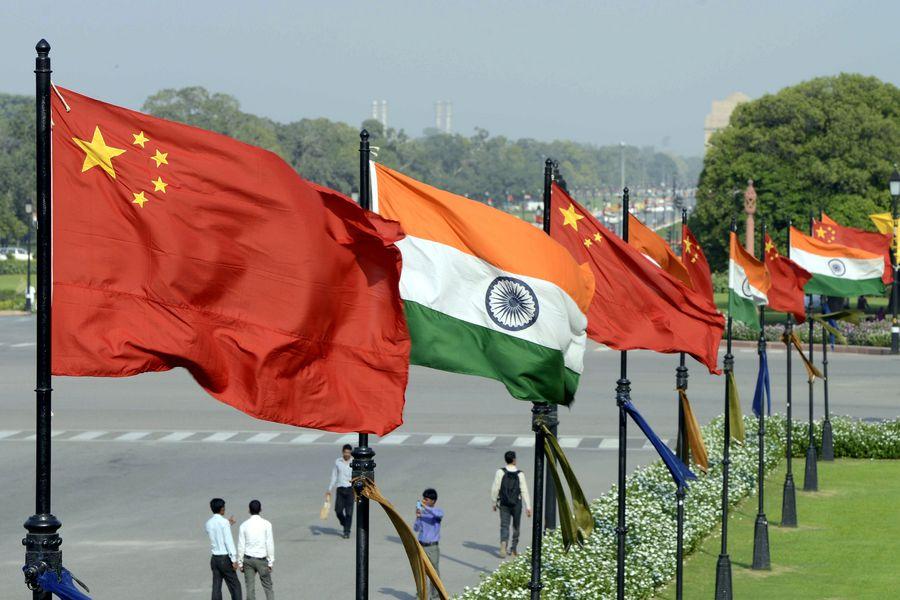
Indian and Chinese national flags flutter side by side at the Raisina hills in New Delhi, India, in this file photo. [Photo/Xinhua]
This is an editorial from China Daily.
In another major crackdown against Chinese apps, the Indian government has initiated the process to ban or block around 230 applications connected to China, on an "urgent" and "emergency" basis, on the grounds that they are betting and loan-lending apps.
The move comes after India's Ministry of Electronics and Information Technology said over the weekend that these apps contain "material which is prejudicial to sovereignty and integrity of India", although no evidence has been forthcoming to support that allegation.
This seems all the more self-evident given the fact that over the past few years, New Delhi has already banned more than 300 Chinese apps including globally popular ones such as TikTok and WeChat in the country, citing similar security and safety reasons. The latest ban has now added the total number of Chinese apps banned in India to more than 500 since June 2020, when a deadly border clash between Chinese and Indian troops sparked tensions in bilateral relations.
The increasingly confrontational stance that India has taken toward Chinese apps and high-tech companies should partly be attributed to some Indian politicians seeking to take advantage of the rising nationalistic sentiment in the country. Chinese products, services and investments are always easy targets in India given the 1962 Sino-Indian war and the two countries' long-standing unsolved border disputes.
Yet there are increasing signs that geopolitics is also playing a part, as India has in recent years been closely toeing the line of the United States in its anti-China strategy globally. Its proactive participation in the QUAD aside — a security mechanism targeting China that groups India with the US, Australia and Japan — India has also joined the US-initiated high-tech war against China, by inking the US-India Initiative on Critical and Emerging Technologies that aims to exclude China from global supply chains, especially in such key sectors as semiconductors, telecommunications and artificial intelligence. Such moves have already substantially harmed bilateral relations with China.
India is one of the largest overseas markets for Chinese high-tech companies and apps, and their success, thanks mainly to the competitiveness and localization of their products and services, has also facilitated jobs creation and the growth of related industries in India, benefiting the country's overall economy.
By targeting Chinese enterprises and apps on spurious national security grounds, the Indian government has not only violated market rules but also disrupted market order, which is detrimental to India's own longer-term economic prospects. Hopefully New Delhi will soon correct its wrongs by removing the irrational bans and providing a level playing ground for Chinese enterprises operating there.

 中文
中文



